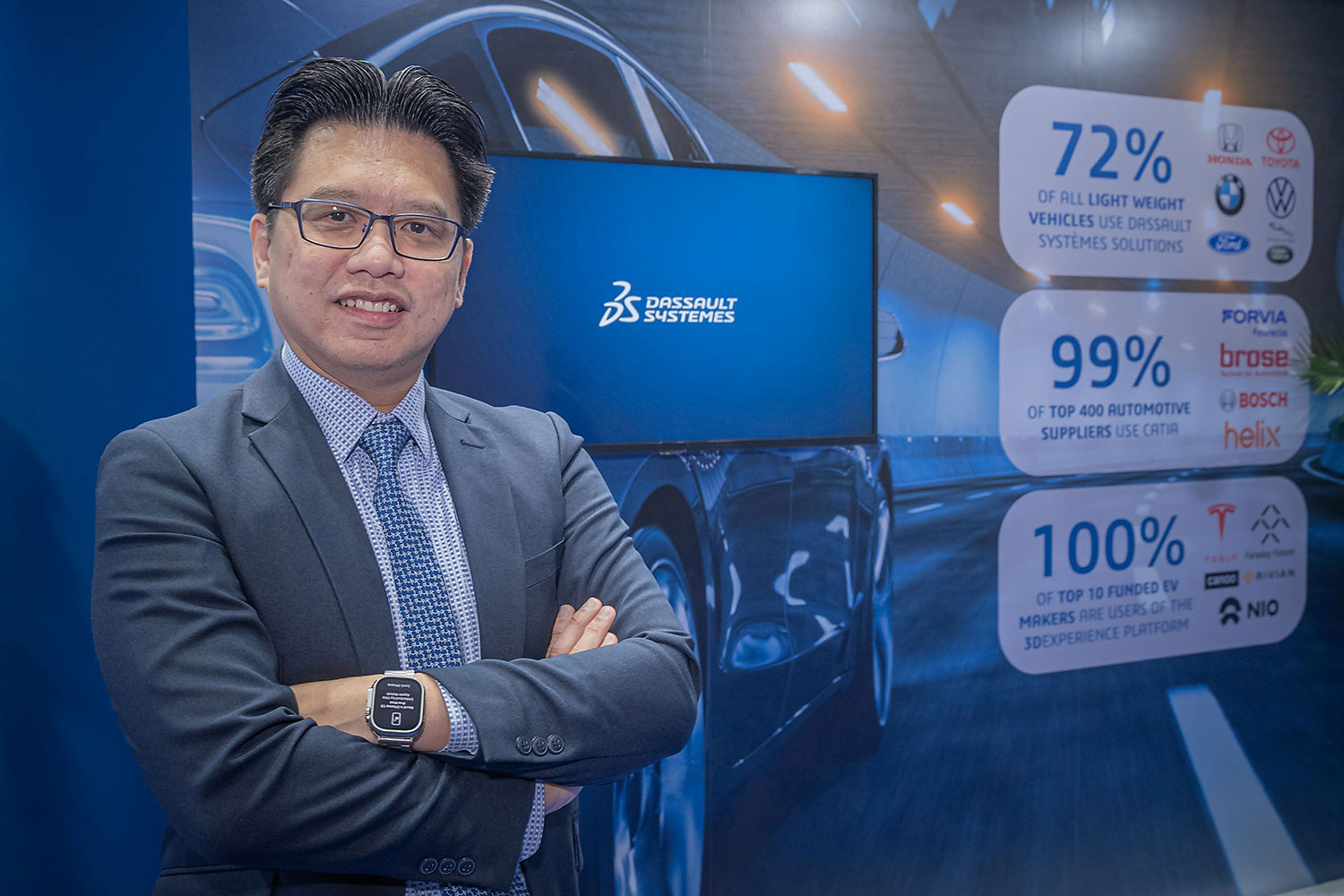
A 3D modelling, simulation and analytics capability that uses social collaboration is empowering "virtual twin technology" to become a new tool to transform future mobility and help smart cities deal with traffic congestion and air pollution, according to the France-based 3D design software firm Dassault Systèmes.
Virtual twin technology is an extension of a digital twin, which is a digital replica of a physical object, system or process that integrates advanced technologies and data sources to enable more sophisticated analysis, decision-making and interaction with the virtual representation.
3D modelling, simulation, analytic capability, social collaboration and cloud computing are enabling new capabilities as part of the emerging virtual twin technology that helps rapidly transform city infrastructure and advanced transport, said Ng Aik Hock, Dassault Systèmes's director for cities and public services in Asia-Pacific South.
The company is a pioneer of virtual twin technology via its virtual twin 3DExperience platform.
The technology enables real-time monitoring, analysis and decision-making as well as enhancing policy formulation through realistic simulations, Mr Ng said in an exclusive interview with the Bangkok Post.
Mr Ng said sustainability regulations to reduce pollution as well as urban growth pose complex challenges such as traffic congestion. "Precise planning and development are crucial. Cities are getting smarter by using sensor data," he said.

Virtual twins accelerate innovative ideas to create sustainable city growth and revolutionise various aspects, from buildings and resources to the entire ecosystem by providing a holistic view and digital testing capabilities, according to Mr Ng. City planners utilise virtual twins to model and simulate scenarios, gaining vital insights and visualisations into the effects of transitioning from internal combustion engine-powered vehicles to electronic vehicles (EVs) for improved air quality, he said.
City planners also analyse the influence of shadows and sunlight on buildings, the effects of noise pollution, facilitate the planning of highways, roads and cycling paths, enhance pedestrian comfort for barrier-free journeys and ensure safe exits to prevent disasters in public areas.
"City planners can have precise decision-making, avoiding trial and error mistakes and prevent negative impacts and complaints from citizens," he said.
For effective deployment, cities can use the 3DExperience platform which is cloud-based and facilitates collaboration among diverse stakeholders, including public and private entities, academic institutions and scientific organisations. Unlike in the past when many such tasks were carried out separately, less sharing of data is required while the waiting time for planning processes has been reduced.
Virtual twin technology brings together people, processes and data to streamline cooperation and co-creation while enhancing the planning process. All stakeholders have the same visualisation with better communications between tech and non-tech personnel, he said.
"The outcome depends on accuracy and updates with the opening of data," said Mr Ng.
One real use case of the technology is the Rennes Métropole -- an intercommunal structure, centred on the city of Rennes -- which uses virtual twin technology to address climate impact and manage the area's landscape.
Mr Ng said apart from helping in the transformation to smart cities and the development of transportation infrastructure for the future of mobility, the virtual twin concept supports the automotive sector in particular, helping make Thailand an attractive proposition in terms of its aim to become an EV hub by 2030.
The virtual twin technology incorporates the sustainability concept, according to Dassault Systèmes. The insights provided by the virtual twins would facilitate optimisation of EV charging infrastructure, planning and the measurement of accessibility based on key parameters such as distance, population and existing infrastructure.
Moreover, it also analyses, optimises and tests EV battery designs to improve their performance, durability, safety and range thereby accelerating the development process and enabling manufacturers to design more efficient and reliable batteries.
In order to capitalise on the high potential of EVs and smart cities in Thailand, the company would open a local office in Thailand to deepen support for customers and partners by the second half of this year, Mr Ng said.






